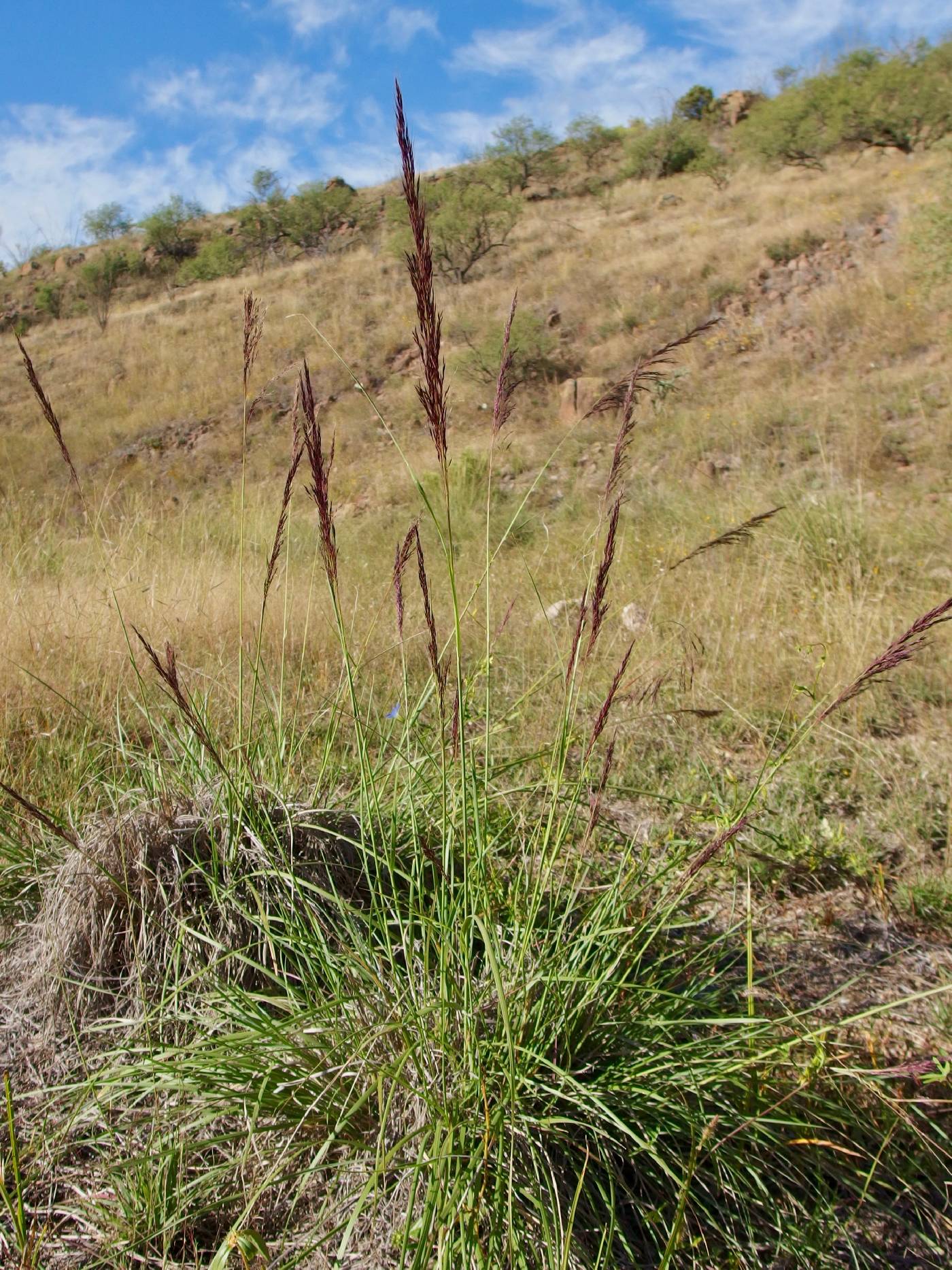Muhlenbergia
|
Family: Poaceae |
Plants annual or perennial; usually rhizomatous, often cespitose, sometimes mat-forming, rarely stoloniferous. Culms 2-300 cm, erect, geniculate, or decumbent, usually herbaceous, sometimes becoming woody. Sheaths open; ligules membranous or hyaline (rarely firm or coriaceous), acuminate to truncate, sometimes minutely ciliolate, sometimes with lateral lobes longer than the central portion; blades narrow, flat, folded, or involute, sometimes arcuate. Inflorescences terminal, sometimes also axillary, open to contracted or spikelike panicles; disarticulation usually above the glumes, occasionally below the pedicels. Spikelets with 1(2-3) florets. Glumes usually (0)1(2-3)-veined, apices entire, erose, or toothed, truncate to acuminate, sometimes mucronate or awned; lower glumes sometimes rudimentary or absent, occasionally bifid; upper glumes shorter than to longer than the florets; calluses poorly developed, glabrous or with hairs; lemmas glabrous, scabrous, or with short hairs, 3-veined (occasionally appearing 5-veined), apices awned, mucronate, or unawned; awns, if present, straight, flexuous, sinuous, or curled, sometimes borne between 2 minute teeth; paleas shorter than or equal to the lemmas, 2-veined; anthers (1-2)3, purple, orange, yellow, or olivaceous. Caryopses elongate, fusiform or elliptic, slightly dorsally compressed. Cleistogamous panicles sometimes present in the axils of the lower cauline leaves, enclosed by a tightly rolled, somewhat indurate sheath. x = 10. Named for Gotthilf Henry Ernest Muhlenberg (1753-1815), a Lutheran minister and pioneer botanist of Pennsylvania. Spikelets 1-fld (casually 2-fld in a few spp.), articulated above the glumes; glumes usually equal or subequal, seldom very unequal, subulate to ovate, keeled, 1-veined or rarely 2-3-veined or veinless, membranous or scarious toward the margins, acute to subulate or rarely truncate, often awned, the body shorter to a little longer than that of the lemma; first glume rarely obsolete; lemma membranous, laterally compressed but rounded on the back, 3-veined, acute to subulate, sometimes awned from the tip; palea nearly as long as the lemma; callus often bearded; style-branches naked; rachilla not prolonged; fr permanently enclosed by the lemma; our spp. perennial, often freely branched, bearing open or contracted panicles of small spikelets. 100, mainly New World. Gleason, Henry A. & Cronquist, Arthur J. 1991. Manual of vascular plants of northeastern United States and adjacent Canada. lxxv + 910 pp. ©The New York Botanical Garden. All rights reserved. Used by permission. |

